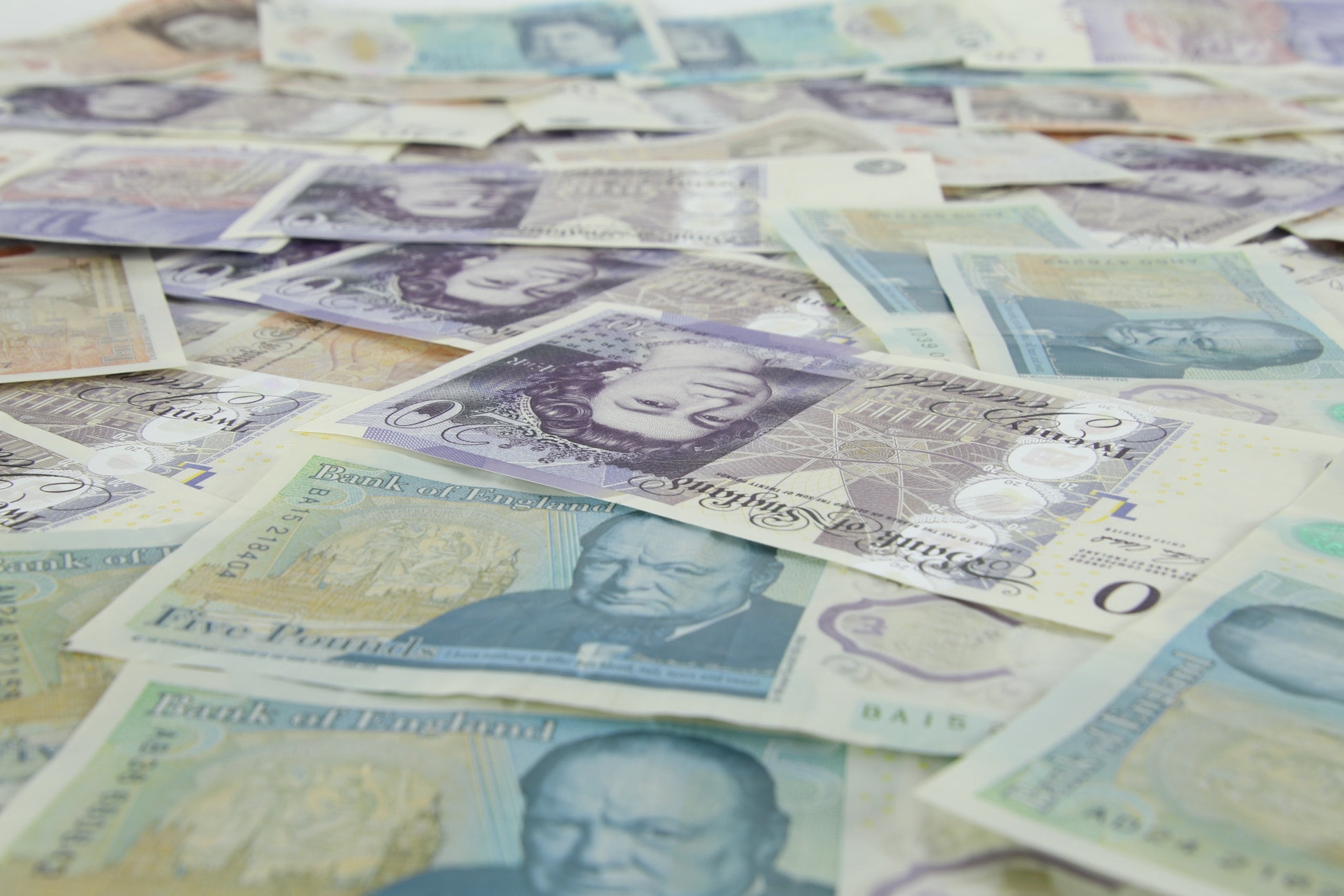Ready to revolutionize your savings strategy without falling prey to snooze-worthy bank jargon? Welcome to the ultimate guide on Cash ISAs, where we spill the tea on benefits, fees, rates, and all the vital info you need to make savvy financial moves. Whether you’re a millennial hustling through side gigs or a Gen Z rising star building that money nest, this guide is crafted to keep things engaging, humorous, and refreshingly straightforward.
Cash ISA: Benefits, Fees, Rates & Key Information Table of Contents
What Is a Cash ISA and Why Should You Care?
The Perks of Placing Your Money in a Cash ISA
Fees, Rates, and Other Key Features to Know
Choosing the Right Cash ISA: What to Look For
Smart Strategies for Maximizing Your Cash ISA Returns
Common Pitfalls and How to Dodge Them
Advanced Tips: Boosting Your Financial Wellbeing with a Cash ISA
Resources and Community Support: Your Next Steps
Frequently Asked Questions About Cash ISAs
Empowering Your Financial Future: Start Your Cash ISA Journey Today
What Is a Cash ISA and Why Should You Care?
Picture this: a super-safe savings account that lets you pocket tax-free interest without any hidden goblins munching away your returns. That’s a Cash ISA for you. ISA stands for Individual Savings Account, and when we say “Cash,” we mean that your funds are secure in cold, hard cash deposits rather than stocks or bonds.
For those who like keeping it low-risk while still earning a bit of extra on their savings, a Cash ISA is like the cozy, dependable friend who never lets you down. It’s perfect for stashing your emergency fund, saving for that epic holiday, or even just keeping your funds where you can see them—no volatile market swings, no nerve-wracking portfolio updates.
In today’s ever-fluctuating financial landscape, a Cash ISA stands out by offering tax-free interest. That means every extra penny you earn on your savings isn’t eaten away by tax collectors. It’s the financial equivalent of a secret stash of free money—and who wouldn’t want a piece of that action?
The Perks of Placing Your Money in a Cash ISA
Let’s dive into why so many people are swapping their traditional savings accounts for a sparkling Cash ISA. Here’s the lowdown on the benefits:
- Tax-Free Interest: Say goodbye to taxes nibbling at your interest earnings. With a Cash ISA, every cent saved is wholly yours to enjoy.
- Capital Protection: Your money is locked away in a safe haven, meaning the government’s Financial Services Compensation Scheme can protect you up to certain limits if the provider ever goes bust.
- Flexibility: Most Cash ISAs offer easy access to your funds. Need a cheeky emergency payout? You can withdraw without facing pesky penalties, though it’s best to check the terms of your specific account.
- Simple Setup: Opening a Cash ISA is usually as straightforward as signing up for a new social media account. With online applications and minimal paperwork, you’re in and saving in no time.
- Diverse Options: From instant access to fixed-term accounts with higher rates, there’s a Cash ISA for every saver’s style.
Imagine all these perks wrapped up in one smart package. It’s like having your cake and eating it too—if your cake was made of tax-free interest and rock-solid savings security.
Fees, Rates, and Other Key Features to Know
Before you dive headfirst into the world of Cash ISAs, let’s break down some of the important jargon you need to understand, so you never feel bamboozled by the fine print.
Understanding Interest Rates
Interest rates on Cash ISAs can vary quite a bit between providers. You might come across:
- Variable Rates: These can change over time, often tied to market conditions. Think of them like the mood swings of your favorite indie artist—exciting when they’re high, but sometimes unpredictable.
- Fixed Rates: These rates stay locked in for a set period—usually between one and five years. They’re like that reliable friend who always texts you back on time, providing stability in uncertain times.
- Introductory Rates: Some accounts may offer a hot introductory rate that only applies for a short period before reverting to a lower rate. Keep an eye on these, so you’re not caught off guard when the rate changes.
When scouting for the best rate, always consider how long you’re comfortable committing and whether the account’s withdrawal terms suit your lifestyle. After all, a rate that’s best on paper might not be ideal if it ties up your cash when you need it.
Fees to Watch Out For
While the beauty of Cash ISAs largely lies in their simplicity, there are a few fees and restrictions you should be aware of:
- Withdrawal Fees: Some Cash ISAs, especially those with fixed rates, might charge a fee or even penalize you if you take money out before a set period. Always check the terms so you don’t get hit with unwanted charges.
- Account Management Fees: Although rare, a few providers might charge a small fee to manage your account. These fees are usually minimal but can add up over the years if you’re not careful.
- Transfer Fees: If you want to switch your ISA provider for a better rate or different features, check if there are any transfer fees involved. Many modern providers offer free transfers, but it never hurts to confirm!
By staying savvy about the potential fees, you can navigate the landscape of Cash ISAs confidently, ensuring that every decision you make bolsters your financial future without unexpected setbacks.
Key Features That Set Cash ISAs Apart
Beyond the benefits and fees, here are a few distinctive features that make Cash ISAs the go-to choice for conservative savers:
- Annual Allowance: Each tax year, you can deposit up to a prescribed limit into your ISA accounts. For many, planning how to maximize this allowance is like budgeting for your monthly Netflix subscription—exciting yet strategic!
- Carry-Forward Options: Some accounts allow you to roll over your ISA balance from one tax year to the next, helping you build a steadily growing tax-free fund over time.
- Flexibility in Deposits: Whether you prefer to build up your savings gradually or make a bold lump sum deposit, Cash ISAs welcome a variety of deposit habits.
- Transparency: Because they’re regulated by the government, these accounts come with clear guidelines and consumer protections. There’s nothing quite as comforting as knowing exactly how your money is being handled.
Choosing the Right Cash ISA: What to Look For
When you’re on the hunt for the perfect Cash ISA, it’s crucial to compare providers like you’d size up the best fast-casual burger joint—in other words, pick based on what truly satisfies your cravings (but in this case, for security and good rates).
Compare Interest Rates and Terms
The first step in choosing a Cash ISA is to compare the interest rates offered by different providers. Take note of whether the rate is fixed, variable, or an introductory offer. Additionally, pay close attention to the term conditions. Some accounts require you to lock your funds for a period, while others offer instant access.
Think of it like signing up for a gym membership—some plans offer a killer deal if you commit long term, but might punish you if you decide to bail early.
Assess the Flexibility You Need
Your lifestyle plays a major role in the type of Cash ISA that’s right for you. For instance, if you’re someone who likes having quick access to funds for spontaneous weekend road trips or unexpected bills, an instant-access Cash ISA might be your best bet. On the flip side, if you can afford to lock away your cash for a while to earn a higher interest rate, a fixed-rate ISA might be more appealing.
It all boils down to your personal financial habits and future goals. There’s no one-size-fits-all answer—just the need to find what fits you like your favorite pair of jeans.
Read the Fine Print
Even if the interest rate seems irresistible, always read the fine print. Look for any potential withdrawal penalties, account management fees, or conditions that might affect your ability to move your money if better opportunities arise.
It might not sound glamorous to pore over bank terms and conditions, but trust us—spending a few extra minutes now can save you from hidden fees and surprises later.
Smart Strategies for Maximizing Your Cash ISA Returns
Earning stellar interest on your savings isn’t just about picking the highest rate (though that definitely helps). It’s about forming smart habits and strategic routines that keep your money growing consistently.
Max Your Annual Allowance
Every tax year, you’re allowed to deposit a set maximum amount into your ISA accounts. The idea is to treat it like a once-a-year financial challenge—how much can you tuck away without even feeling it? Even if you can’t max out the allowance every year, aim to contribute steadily to build a robust, tax-free savings buffer.
Consider setting up an automatic transfer on payday to ensure you never miss out on these contributions. It’s the adult version of “set it and forget it”—with the added bonus of tax-free interest.
Revisit Your Savings Goals Annually
Life changes—graduation, a new job, moving to a swanky new flat—and so do your financial goals. Make it a habit to evaluate whether your current Cash ISA is aligning with your evolving plans. If the interest rates drop or your requirements shift, upgrading or transferring your ISA might be the perfect next move.
Think of it as an annual health check-up for your finances. Regular check-ins can help you stay on track and pivot quickly when a better opportunity arises.
Combine Your Savings Strategy
A Cash ISA is just one component of a well-rounded financial strategy. While the tax-free benefits are fantastic, consider diversifying your savings by coupling your Cash ISA with other investment ISAs or a complementary savings account. This diversification is like having a varied playlist for every mood—it keeps your portfolio balanced and resilient no matter what comes your way.
Stay Informed and Updated
The world of financial products can change in the blink of an eye. New providers enter the market, existing ones tweak their offerings, and economic shifts can lead to fresher, more enticing deals. Bookmark trusted personal finance blogs, subscribe to newsletters, or join online forums where fellow savers share tips and success stories. Staying in the loop means you’re always ready to snap up an opportunity that can boost your returns.
Embrace a mindset of continuous learning. The more informed you are, the more confident you’ll be in making smart, strategic savings decisions that suit your lifestyle.
Common Pitfalls and How to Dodge Them
As with any financial journey, the road to maximizing your Cash ISA’s potential isn’t always perfectly smooth. Here are some common pitfalls—and our tips for expertly sidestepping them:
Leaving Money Idle
One frequent misstep is not taking full advantage of your annual allowance. If you’re not regularly reviewing your savings strategy or if you let life’s distractions get in the way, you might end up leaving tax-free money on the table. Pro tip: Automate your savings contributions and schedule a yearly financial reflection session.
Falling for Tempting, Short-Term Offers
Sometimes, those flashy introductory rates can be super tempting. However, they often revert to less competitive rates once the introductory period is over. It’s like that limited-time sneaker drop—exciting for a minute but not always a long-term win. Always look beyond the initial charm and focus on the overall package.
Ignoring Withdrawal Restrictions
Before you commit, check if there are any restrictions on withdrawals. Some fixed-rate Cash ISAs can come with penalties for early withdrawal. Missing out on funds during a financial emergency can throw your plans for a loop. Make sure you’re comfortable with the access terms before locking in your savings.
Not Shopping Around
The market for Cash ISAs is more competitive than ever. Failing to compare options means you might end up stuck with a subpar deal. Take the time to read reviews, check provider ratings, and even use comparison websites to ensure you’re getting the best rates and lowest fees.
By staying vigilant and proactive, you can navigate these pitfalls like a seasoned financial ninja, ensuring your Cash ISA remains an integral part of your wealth-building journey.
Advanced Tips: Boosting Your Financial Wellbeing with a Cash ISA
Beyond avoiding common mistakes, there are plenty of advanced strategies you can adopt to make your Cash ISA work even harder for you. Let’s explore some creative approaches that might just give you the extra edge in your savings game:
Reinvesting Your Tax-Free Gains
Once your Cash ISA starts accumulating interest, consider reinvesting that tax-free gain into additional savings or even a diversified investment. It’s the magic of compounding—in essence, your money makes money, and then that money makes even more money. A win-win scenario for the savvy saver.
Aligning Your ISA with Life Stages
Your financial priorities evolve as you do. A Cash ISA can serve different roles at different stages of life—whether it’s an emergency fund during your early career, a down payment saver in your prime, or a cushion for retirement in the later chapters of your life. Adjust your deposit amounts and account type (instant access versus fixed) as your needs shift.
Utilizing Mobile Apps and Financial Tech
In today’s digital world, managing your ISA is easier than ever with financial apps that track your savings, provide personalized advice, and alert you to better deals. Explore options that sync with your bank account, enabling you to monitor your growth, set savings targets, and even automate transfers. Your smartphone isn’t just a device for scrolling memes—it’s a potent tool for boosting your financial savvy.
Exploring ISA Transfers
If you discover a provider offering a higher interest rate or better terms, you might consider transferring your ISA. Transferring can optimize your overall returns while still keeping you within the confines of tax-free savings. Just be sure to follow the official transfer process to avoid jeopardizing your tax benefits.
By incorporating these advanced tactics, you actively shape your financial future—not just by saving money, but by ensuring your money is always working in your favor.
Resources and Community Support: Your Next Steps
Venturing into the world of Cash ISAs is not a solo journey. There’s an entire community of financially savvy individuals, blogs, podcasts, and online forums ready to support and share their insights. Here’s how to tap into these resources:
Trusted Financial Blogs and Websites
Many experts and bloggers dedicate their platforms to demystifying personal finance. Keep an eye on sites like MoneySavingExpert, The Money Advice Service, and other reputable financial news outlets—they’re treasure troves of advice on maximizing your savings, understanding market trends, and spotting the best Cash ISA deals.
Join Online Communities and Forums
Platforms like Reddit’s r/UKPersonalFinance (or its international counterparts) and dedicated Facebook groups offer lively discussions, Q&A sessions, and real-life testimonials about Cash ISAs. When you learn from others’ experiences—both wins and pitfalls—you empower yourself to make more confident financial decisions.
Financial Advisors and Workshops
If you prefer guided advice, consider scheduling a consultation with a financial advisor who specializes in ISAs. Additionally, many organizations offer online webinars and local workshops that break down the complexities of ISAs in an easy-to-digest format. Taking part in these can give you the extra nudge you need to manage your money with confidence.
Apps and Digital Tools
Leverage personal finance apps that help you track your savings, set monthly goals, and even alert you when it’s time to check for better rate opportunities. Technology has made it easier than ever to manage your Cash ISA on the go.
Networking with fellow savers and tapping into these resources transforms what could feel like a daunting task into an engaging, ongoing conversation about financial wellbeing. Remember, your financial journey is much easier and more fun when you share experiences and lessons with a supportive community.
Frequently Asked Questions About Cash ISAs
We’ve compiled answers to some of the most burning questions about Cash ISAs, so you can move forward with knowledge and confidence.
1. What exactly is a Cash ISA?
A Cash ISA is a tax-free savings account where you can deposit cash and earn interest without paying tax on your returns. It’s designed to help you save money safely while maximizing your savings potential.
2. How is a Cash ISA different from other savings accounts?
The key difference is tax efficiency. With a Cash ISA, any interest earned is completely tax-free. Additionally, these accounts are often protected under the government’s compensation scheme, adding an extra level of security.
3. What types of interest rates can I expect from a Cash ISA?
Cash ISAs come with a variety of interest rates: variable, fixed, or introductory. Variable rates can fluctuate with the market, fixed rates remain the same for a set period, and introductory rates may be higher for a limited time before reverting to a standard rate.
4. Are there any fees associated with a Cash ISA?
Most Cash ISAs are fee-free, but it’s important to read the terms carefully. Some accounts, particularly fixed-rate options, may have penalties for early withdrawals or small account management fees.
5. Can I transfer my Cash ISA to another provider?
Yes, you can transfer your Cash ISA to another provider if you find a better interest rate or more favorable terms. Just ensure you follow the official ISA transfer process to maintain the tax-free benefits.
6. How much can I deposit into a Cash ISA each year?
There’s an annual allowance limit set by the government, which defines the maximum amount you can deposit into your ISA accounts each tax year. It’s wise to check the current limit and plan your contributions accordingly.
7. Is my money in a Cash ISA protected?
Yes, Cash ISAs are covered by the Financial Services Compensation Scheme, which protects your savings up to a certain limit if the provider runs into financial trouble.
8. What should I consider when choosing a Cash ISA?
Consider the type of interest rate, any withdrawal restrictions, fees, and the overall flexibility of the account. Compare multiple providers to find one that aligns with your saving habits and financial goals.
9. How do fixed-rate and variable-rate Cash ISAs differ?
Fixed-rate ISAs offer a set interest rate for a predetermined period, providing stability and predictability, while variable-rate ISAs can fluctuate based on market conditions, which might yield higher returns in a rising interest rate environment.
10. Can I open more than one Cash ISA?
You can only open one Cash ISA per tax year. However, if you already have one, you can use the transfer option to move your savings to another provider if it offers better terms.
Empowering Your Financial Future: Start Your Cash ISA Journey Today
Ready to boost your financial wellbeing without the boring financial jargon? A Cash ISA might be your golden ticket to building a secure, tax-free savings portfolio. By understanding the benefits, keeping an eye on fees and rates, and staying informed with ongoing research and community support, you’re well on your way to making smarter, more confident financial decisions.
From the basics to advanced tips, our guide has shown that with a little planning and a dash of savvy, your Cash ISA can be more than just an account—it can be a powerful tool that adapts to your life’s twists and turns while protecting your hard-earned money.
So, why settle for average when you can maximize your savings with a Cash ISA that fits your style? Whether you’re saving for a new gadget, planning an epic getaway, or simply wanting that extra sense of security, take the plunge and explore your Cash ISA options today.
Embrace the journey to financial empowerment, armed with knowledge, community support, and the confidence to choose a path that’s both smart and tailored to your lifestyle. Your future self will thank you for every tax-free pound earned—and every step you take toward financial freedom!













